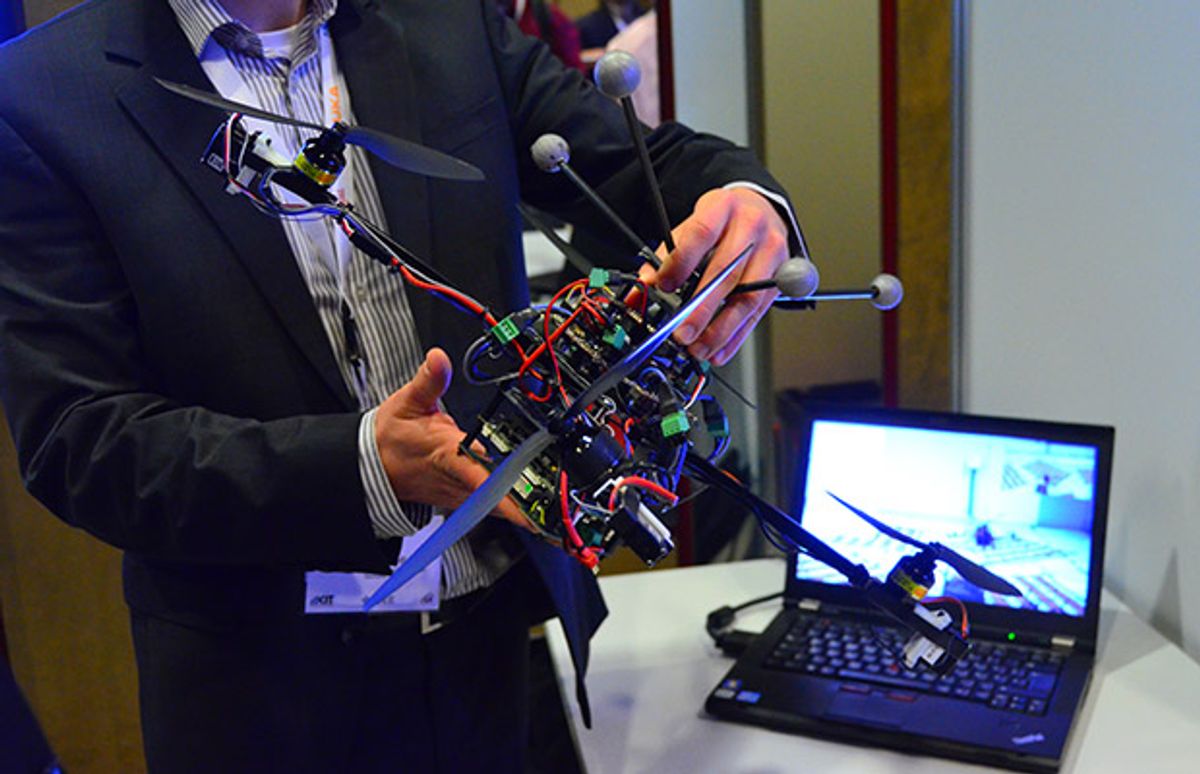Conventional quadrotors are what’s called underactuated robots, which means that they can move in more ways than they have independent control over. For example, they can happily yaw around to any angle you want while otherwise stationary, but if you ask them to pitch or roll, they can’t do it without also changing their position: if you try to roll a quadrotor left, the whole robot is going to fly left, and if you try to fly a quadrotor left, the whole robot is going to roll left.
Having controls coupled together like this places some restrictions on what you can do with quadrotors, but a new design presented yesterday at the 2013 IEEE International Conference on Robotics and Automation (ICRA) gets around all of that with propellers that tilt.
This level of control turns the quadrotor into a fully-actuated robot: you have complete control over its position and orientation, and as the video shows, this lets the quadrotor do things that would otherwise be impossible for a conventional quadrotor without those tilting propellers.
There are tons of ways in which this new capability can be useful, but I’d say the most obvious one is for any quadrotor that carries a camera (which is pretty much all of them nowadays): instead of having to either rely on a static camera or invest in a complicated, heavy, and expensive gimbaled mount, you can now use the entire quadrotor as a pan and tilt camera platform.
Future work will improve the capabilities of this prototype (it’s called the “omnicopter”), and the researchers also plan to start experimenting with environmental interaction tasks that require orientation control, like using tools.
"First Flight Tests for a Quadrotor UAV with Tilting Propellers," by Markus Ryll, Heinrich H. Bulthoff, and Paolo Robuffo Giordano from the Max Planck Institute for Biological Cybernetics, was presented this week at ICRA 2013 in Germany.
Evan Ackerman is a senior editor at IEEE Spectrum. Since 2007, he has written over 6,000 articles on robotics and technology. He has a degree in Martian geology and is excellent at playing bagpipes.



